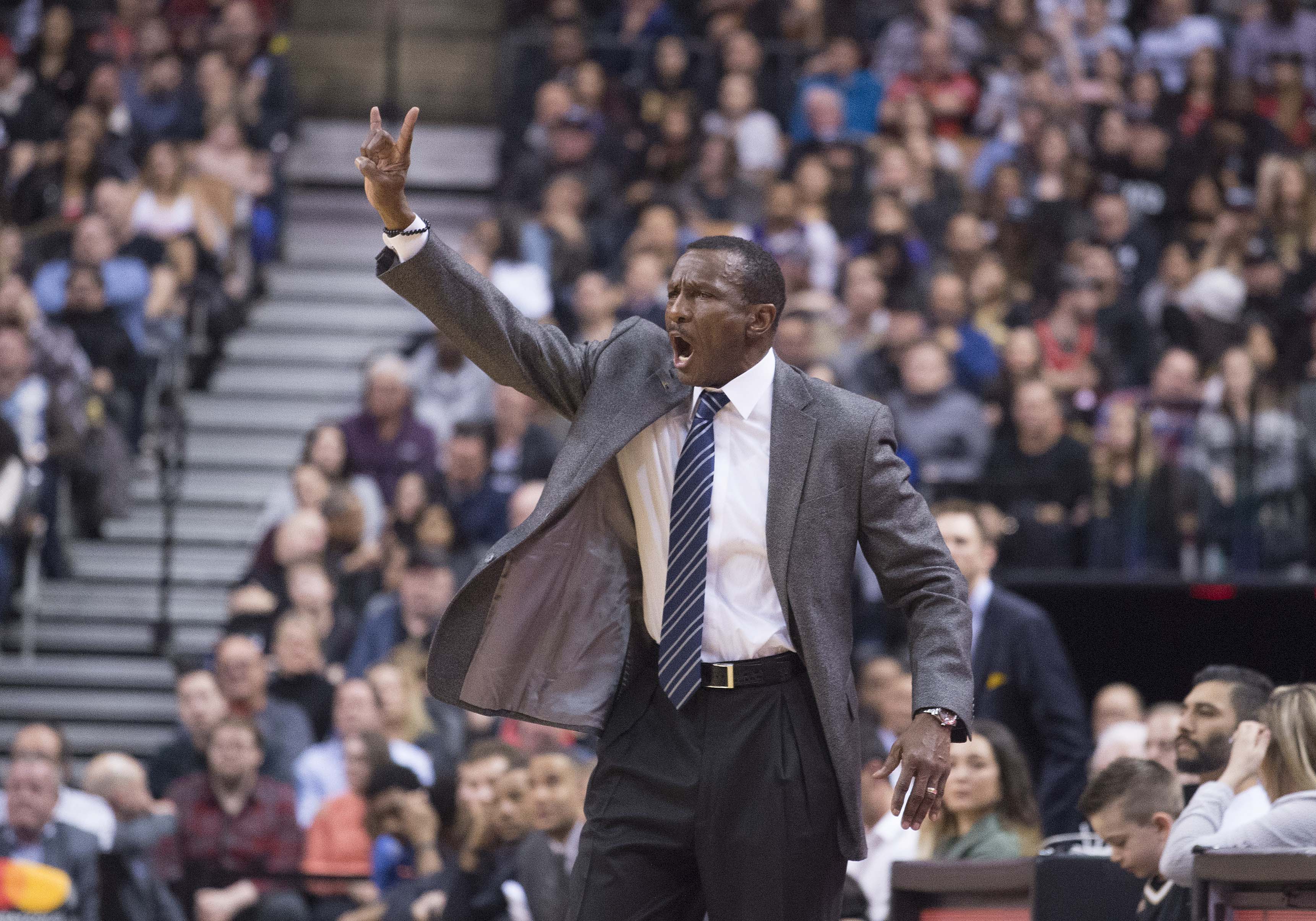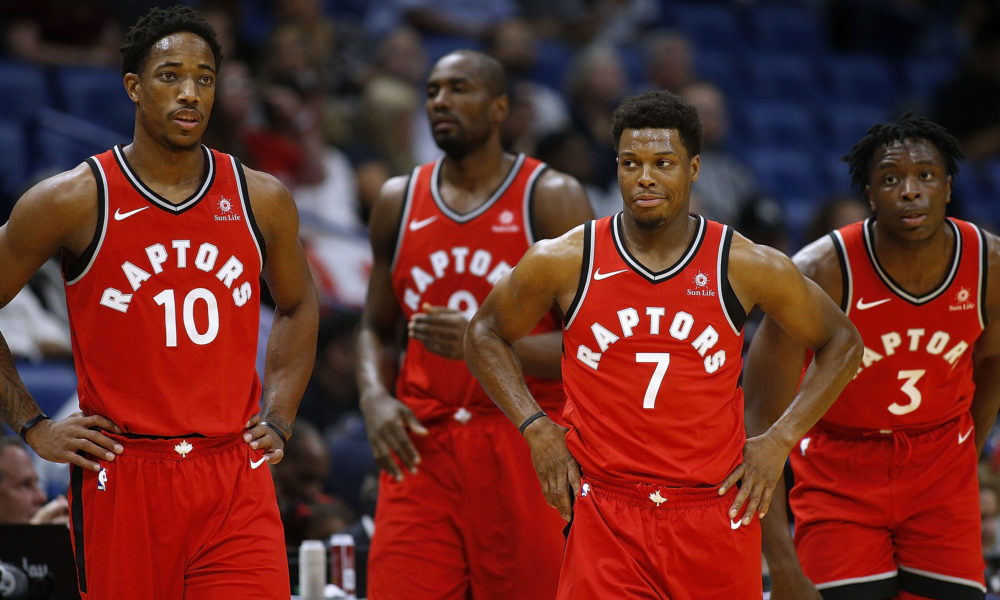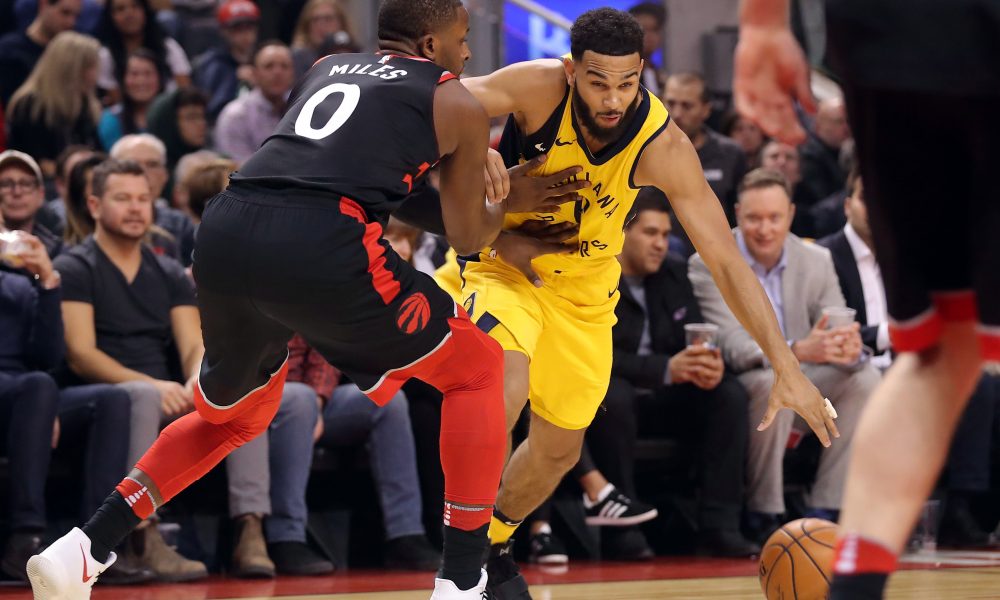After a double-digit loss to the Kyrie Irving-less Boston Celtics, it’s now safe to say the Toronto Raptors are in a rut (if it wasn’t already). The team has dropped four of its past seven contests and allowed opponents to score a ridiculous 114 points per game during that span. If you exclude the Raptors win over the Magic on March 20 in which Orlando was held to a measly 86 points, that mark balloons up to 119 points per game. Considering how consistent Toronto has been on both ends of the court this season, this stretch of poor play should certainly be a cause for concern, especially with the postseason looming.
The Raptors issues have been most glaring on the defensive side of the ball. Prior to March 18 − the semi-official date I chose as an indicator for when the Raptors started regularly putting forth lousy defensive efforts − Toronto owned the fourth-lowest (in other words, the fourth-best) defensive rating in the league at 102.8. The script has completely flipped over the team’s last seven games, though. Over that span, Toronto has produced an underwhelming 113.5 defensive rating. That equates to the second-worst defensive rating in the league, ahead of only the Denver Nuggets.
So why is it that after months of consistent defensive efforts, the Raptors find themselves struggling to get stops at a less-than-ideal time of the season? Partially, it’s because of the team’s often-glorified bench unit. More specifically, it’s somewhat a result of the bench’s inability to reinvigorate the Raptors and claw the team back into games.
For most of the season, the Raptors reserves took the league by storm, out-hustling and outplaying any opposing lineup they were matched up against. Up until this recent seven-game stretch, the Raptors bench was undoubtedly the strongest group of reserves in the NBA. Because of the second unit’s dominance, the Raptors had the ability to shrink leads quickly and remain competitive in games they really shouldn’t have had any business being competitive in. If the starters were struggling, the bench would usually be there to bail them out. Largely because of the group’s league-best 100.5 defensive rating before March 18, Toronto’s ‘bench mob’ had the best net rating among second units at 9.8.
Since March 18, those numbers have declined significantly, and consequently, the Raptors have struggled to get back into games of late after falling behind. The bench’s defensive rating has increased to 110 since then, and unsurprisingly the group’s net rating shrunk to 2.6. What makes this even more concerning is that the Raps reserves are actually averaging more minutes in the past seven games (22.1) than they have throughout the rest of the season (20.9).
So if the bench has come back down to earth right before the playoffs, what should Raptors head coach Dwane Casey do?
For a while, many Raptors fans thought the team’s best course of action in the postseason would be to utilize a deep rotation. Now, with the reserves struggling the way they have been, it may be wise for Casey to explore shrinking the rotation to eight or nine players for a seven-game series. If the bench is struggling, it only makes sense to give the starters more minutes over the reserves, right?
Not exactly.
Just like the bench, the Raptors starters have struggled mightily over the team’s past seven outings. The starters have actually been even worse than the reserves defensively, as the group’s league-worst 116.3 defensive rating since March 18 proves. Before that date, the starters had an impressive defensive rating of 104.5. As you can see, the Raptors defensive decline has been a collective effort.
No matter who Casey turns to right now, he’s having a tough time getting much defensive intensity out of anyone. Yes, it’s still the regular season, but with only six games remaining between now and the playoffs, this trend should be considered a cause for concern.
The Raptors are a team that has prided themselves on consistency this season, and through 76 games of the schedule, haven’t had to really prove how they respond following a prolonged cold spell. That is, until now.
Responding following a tough loss or two is one thing. Bouncing back from four or five tough defeats over a two-week-long stretch is a different story. The Raptors could make me look silly, but this team hasn’t exactly proven that it can flip the switch and bring its performance to another level when games matter most. And considering how Toronto is playing its worst basketball of the season heading into its most important stretch of games in only two weeks time, I’d be lying if I said I wasn’t worried.
I have one message to end this off that hopefully reaches someone within the Raptors organization before it’s too late: Put the past two weeks worth of games behind you, refocus, and get back to playing at a consistently high level on both ends. Your fans will thank you for it.



